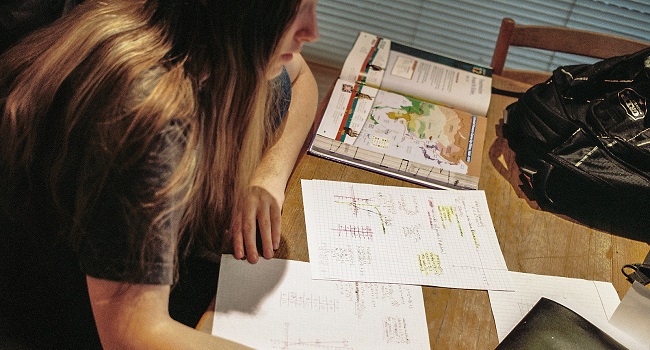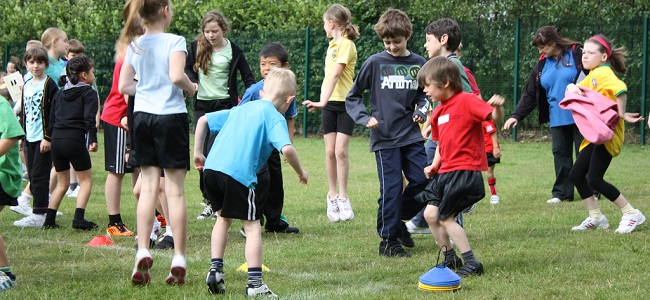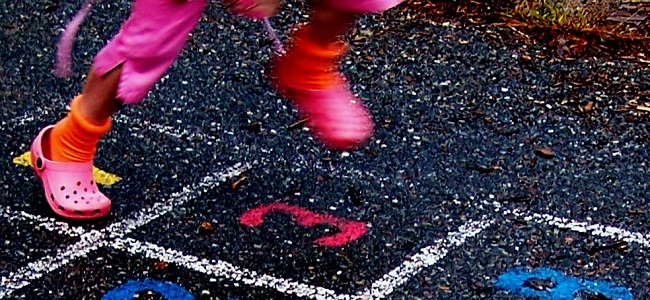A student’s behaviour in the classroom can be determined by a whole host of different factors, and their relationship with you as their classroom teacher is fundamentally the most important factor. However, in order to get good behaviour in a classroom with an individual, a lot more is needed than just sanctions and high expectations. This is where positive behaviour for learning comes in to play.

Back in September 2011, I began the academic year full of gusto. I had re-planned schemes of work, made some lovely new resources and prepared exciting performing and listening tasks. After several weeks into the term, I realised something wasn’t quite right. Work from some students hadn’t been done particularly well, feedback was becoming more lengthy and wordy, and the weaker students were continuing to make the same mistakes. I needed to rethink how I was teaching the struggling students.
Like SPECTRE in James Bond, those who identify as being geeks are now beginning to infiltrate the highest and most influential positions in society. Given that the role of an educator is about as influential as you can get, many teachers consider themselves as such. Teacher Rachel Jones, herself a huge advocate of geekiness, examines how this mindset and identity affects education.

Let us look to the glorious Urban Dictionary for our definition of geek:
“Geeks are superior to all other people because they have the knowledge and social ability to get to where they want to be.”
Arguably more than any specialist area of education, SEN pupils require certain qualities for a good education. Here, Nicky Broomhall, Principal at Star Academy Sandyford, discusses how her school has embraced SEN teaching.

As special needs programmes have become an increasingly important consideration for mainstream educational institutions, SEN provision is now a hot topic of discussion for primary schools striving to offer that extra level of support to their pupils.
Following on from Jane Basnett’s recent article on NQTs, a pastoral professional-turned newly-qualified teacher (and former colleague of Basnett’s) gives her advice to veteran teachers dealing with newcomers.

I'm about to embark on my NQT year teaching English in an 11-18 academy in the South West. Before doing the PGCE, I worked in other areas of education for four years, first in university outreach, then in a pastoral and academic role in an independent school, where I was a colleague of Jane Basnett. Following on from Jane's very welcome and gratefully received ideas in an earlier post - 'Be prepared: A veteran's advice for NQTs' - here's a view from The Other Side: an NQT's guide to handling NQTs...
To some, education is a machine. To others, it’s more akin to a biological ecosystem. Here, FE English teacher and MSc supervisor Dr Carol Webb explains how, to her, education is an ever-adapting, wildly varied ecological environment.

Why are frogs so happy? Because they eat what bugs them. Haha. Good one. What bugs you about education? Make a list. Yes, you. Do it, now. Then just eat it. Figuratively speaking. How? By engaging in pond life thinking perhaps, that's how.
Despite the frequent, outstanding advances in edtech we see daily, there are still certain areas of education that have stayed mostly unchanged for some time. Here, veteran teacher Jim Baker discusses the problem that he sees with the traditional lesson format, and how it can easily be changed for the better.

From my biography, you’ll see I’ve been in the classroom for 43 years so am speaking from first-hand experience, not to court votes or to agree with what is ‘flavour of the day’. My presentation ‘The Way Forward’ will give you an idea of what my passion is: to educate students into becoming independent learners. I don’t like the word ‘teach’ so I avoid it whenever possible. When asked my profession I say I’m an entertainer. Check out comment #42 in my guestbook by a former colleague back in 2005, who was pleased to see I was “still blurring the boundaries between teaching and entertaining”.
Do British pupils get enough of the outdoors during lesson time? What can al fresco teaching offer both students and teachers? Natalie Harling, the Outward Bound Trust’s head of education development, explains why a bit of fresh air can do the education system a lot of good.

Being outdoors is good for you. This is something we are taught from an early age that fresh air and exercise, both indoors and outdoors, are beneficial to our wellbeing. However, as teachers we usually associate the outdoors with playtime, free time and enjoyment. It’s Friday, it’s half term, it’s the summer holidays – and perhaps not as the impactful outdoor place of learning that it can be.
Laughter can be a powerful agent of education. Here, teacher and SEN guru Julia Sharman examines why giggles in the classroom are not to be dismissed, and that a child’s fun-loving nature ought to be embraced.

There’s nothing like the sound of children’s laughter. It doesn’t necessarily mean they are up to no good; it means they are happy and having fun. If you hear the sound of laughter coming from a classroom when walking down the corridor, you’re almost compelled to find out what they are enjoying so much. So, are ‘giggles in the classroom’ a positive thing?

A community-driven platform for showcasing the latest innovations and voices in schools
Pioneer House
North Road
Ellesmere Port
CH65 1AD
United Kingdom